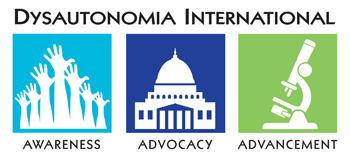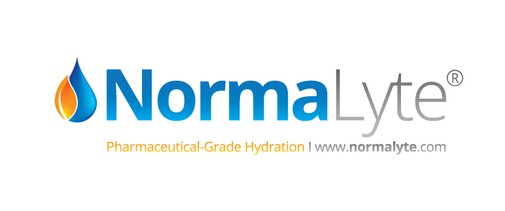Home >> About Us >> Medical Advisory Board
Medical Advisory Board
Dysautonomia International is grateful for the wisdom and guidance provided by our volunteer Medical Advisory Board. These highly accomplished researchers and clinicians keep us updated on the latest developments in autonomic research, diagnostic guidelines and treatment recommendations. They also serve an essential role in helping us decide what medical and scientific research we should seek to fund.
| | |
 | Hasan Abdallah, MD
Pediatric Cardiologist
Director, The Children's Heart Institute
Reston, Virginia
Dr. Abdallah is a board certified pediatrician and pediatric cardiologist. His foremost goal in his private practice is to simplify pediatric cardiology science so that families can understand, in simple straight forward language, what is wrong with their child's health.
Dr. Abdallah is the Director and Founder of The Children's Heart Institute which includes a specialized clinic, The Syncope and Autonomic Nervous System Clinic. This clinic provides comprehensive evaluation and management of patients with symptoms of autonomic nervous system dysfunction. Dr. Abdallah is highly regarded by his patients and their parents for his clinical expertise in diagnosing and treating POTS and other forms of dysautonomia and for his calm, reassuring demeanor.
Dr. Abdallah completed his residency at the University of Florida in Gainesville and his pediatric cardiology training in Philadelphia. He also has completed a fellowship in Acute Pediatrics. He is board certified by both the American Board of Pediatrics and the American Board of Pediatric Cardiology. |
 | Svetlana Blitshteyn, MD
Clinical Assistant Professor
University at Buffalo School of
Medicine and Biomedical Sciences
Director, Dysautonomia Clinic
Williamsville, NY
Dr. Blitshteyn is a board-certified neurologist who completed her neurology training at Mayo Clinic. She specializes in dysautonomia and is the director and founder of the Dysautonomia Clinic, where she sees patients with POTS, neurocardiogenic syncope, and other forms of dysautonomia.
Dr. Blitshteyn has been awarded numerous awards and honors, including the American Academy of Neurology Student Prize, a Research Award from the Florida Society of Neurology, a Marquis Who's Who in Medicine and Healthcare, and a US Human Health Award from the American Headache Society, among others.
Dr. Blitshteyn has been the principal research investigator on several nationally-acclaimed research studies, both at Mayo Clinic and the University at Buffalo, involving women's health. Most recently. She has also published in other scientific journals on the topic of POTS after vaccination, headache, and other neurologic disorders. Dr. Blitshteyn is the medical editor and a contributing author for the book "POTS -Together We Stand; Riding the Waves of Dysautonomia." She is also featured in the documentary "Changes: Living with Postural Orthostatic Tachycardia Syndrome." |
 | Jeffrey Boris, MD
Ambulatory Pediatric Cardiologist
Pediatric Autonomic Specialist
Jeffrey R. Boris, MD LLC
Moylan, PA
Dr. Boris graduated from Washington University School of Medicine and completed his residency in General Pediatrics at Keesler Medical Center, located at Keesler Air Force Base in Mississippi. He then completed a fellowship in Pediatric Cardiology at The Children's Hospital in Denver, Colorado. He is board certified in General Pediatrics and Pediatric Cardiology by the American Board of Pediatrics. He is an active member of the Pediatric Section of the American Autonomic Society.
Dr. Boris is an outpatient pediatric cardiologist, and has been caring for patients with POTS and other pediatric orthostatic disorders since 2002. He practiced as a pediatric cardiologist in the US Air Force at Landstuhl, Germany, and at Keesler Air Force Base, MS, as well as in private practice in Asheville, NC. He worked at The Children's Hospital of Philadelphia in 2007 to 2019, where he created and directed the POTS Program. He started a private practice caring for pediatric and young adult patients with autonomic disorders in 2020. He has published multiple research articles on pediatric POTS, and continues to do research to advance the field. Dr. Boris was named Dysautonomia International's Physician of the Year after being nominated by his patients in 2016. |
 | Kamal Chemali, MD
Assistant Professor of Neurology
Eastern Virginia Medical School
Director, Neuromuscular & Autonomic Disorders Program
Sentara Neurology Specialists
Norfolk, Virginia
Dr. Chemali is a neurologist who trained at the Lebanese University Faculty of Medical Science in Lebanon and the Facultes Universitaires Notre-Dame de a Paix in Belgium, before moving to the US to study at Staten Island Uniersity Hospital and Case Western Reserve Univerity. He then completed a Fellowship in Clinical Neurophysiology, Electromyography, and Neuromuscular Diseases at Cleveland Clinic. Dr. Chemali is certified by the American Board of Psychiatry and Neurology, and the American Board of Electrodiagnostic Medicine, and he is a member of the American Autonomic Society.
Dr. Chemali specializes in the diagnosis and treatment of autonomic and neuromuscular disorders. He has published peer reviewed journal articles on Complex Regional Pain Syndrome, music therapy in neurological disorders and electrodiagnotic testing. Dr. Chemali is also a conservatory trained pianist, and he has taken an interest in music as a therapeutic as a tool to improving pain percention and gait disorders, and language recovery after stroke. |
 | Tae Chung, MD
Assistant Professor of Physical Medicine and Rehabilitation
Director, POTS Clinic
Johns Hopkins University School of Medicine
Baltimore, MD
Dr. Chung is a board certified neuromuscular physiatrist at Johns Hopkins University School of Medicine.
After graduating from Catholic University Medical College in South Korea, he joined the South Korean
Army as a general practitioner. He then completed residency training in the Department of Physical
Medicine and Rehabilitation, followed by neuromuscular fellowship training in the Department of Neurology, both at Johns Hopkins University School of Medicine. Dr. Chung is a member of Academic
Association of Physiatrists and American Academy of Physical Medicine and Rehabilitation. He also serves on the Medical Advisory Board of the Myositis Association.
Dr. Chung’s research is focused on frailty, neurometabolomics, aging, and autonomic disorders, and has
been supported by uninterrupted NIH funding. Clinically, Dr. Chung is interested in various
neuromuscular diseases that can result in frailty and disability, and primarily sees patients with myositis
or POTS in his clinics. At the Johns Hopkins Myositis Center, he focuses on the rehabilitation and exercise
intervention for myositis, and runs a multidisciplinary rehab clinic. He also founded the Johns Hopkins POTS
Clinic, which is a multidisciplinary clinic involving multiple departments at Johns Hopkins, including PM&R, Cardiology, Neurology, Pediatrics, and Medicine, among many others. |
 | Glen Cook, MD
Director
Clinical Neurophysiology and Autonomic Testing Laboratories
Naval Medical Center
Portsmouth, Virginia
Assistant Professor
Department of Neurology
Uniformed Services University F. Edward Hebert School of Medicine
Bethesda, Maryland
Dr. Cook received his undergraduate degree from the University of Utah before attending medical school at the University of Michigan. He completed an Internal Medicine internship at Naval Medical Center San Diego and his residency in Neurology at Walter Reed National Military Medical Center, Bethesda, MD. He completed a fellowship in Autonomic Disorders in the Clinical Neurocardiology Section at the National Institutes of Health in Bethesda followed by a fellowship in Clinical Neurophysiology back at the Walter Reed Program.
Dr. Cook's clinical and academic interests include autonomic changes after mild traumatic brain injury and the neurochemical basis of fainting. |
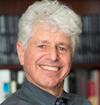 | Roy Freeman, MD
Professor of Neurology
Harvard Medical School
Director, Center for Autonomic and Peripheral Nerve Disorders
Beth Israel Deaconess Medical Center
Boston, MA
Dr. Freeman focuses his clinical practice and research on disorders of the autonomic nervous system and small fiber neuropathies. He is a leading authority on the neurological complications of diabetes, Parkinson's and multiple system atrophy. Dr. Freeman has served as President of the American Autonomic Society Chairman of the Autonomic Nervous System Section of the American Academy of Neurology (AAN). He has authored over 120 publications and serves as a reviewer or editor for several journals including Neurology, Annals of Neurology, Brain, Autonomic Neuroscience, and the American Journal of Physiology.
Dr. Freeman graduated from medical school at the University of Cape Town in South Africa. He completed his internship in internal medicine at Tel Hashomer Hospital in Israel, residency at Brigham and Woman's Hospital in international medicine, and his residency and fellowship in neurology at Beth Israel Deaconess Medical Center in Boston. Dr. Freeman is board certified in neurology and clinical neurophysiology. |
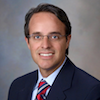 | Brent Goodman, MD
Assistant Professor of Neurology
Director Autonomic Laboratory & Clinic
Mayo Clinic
Scottsdale, AZ
Dr. Goodman grew up in Southern Oregon. He graduated from Tufts University School of Medicine in 1999. He completed his training in Neurology at the Mayo Clinic and did a fellowship in Clinical Neurophysiology and Neuromuscular medicine. Following his training, he joined the staff at the Mayo Clinic in Arizona in 2004, where he established the clinical autonomic program and developed the autonomic laboratories.
Dr. Goodman's primary clinical mission is to provide expert, collaborative, and innovative care to patients with autonomic disorders, including dysautonomia. His research interests include autoimmune causes of autonomic nervous system dysfunction, dysautonomia in concussion, mast cell dysfunction in autonomic disorders, autonomic neurophysiology, and autonomic dysfunction in transplant patients. Dr. Goodman is interested in neurology education and has won multiple teaching awards, including a lifetime educator award from the Mayo Clinic. He was named the Physician of the Year by Dysautonomia International in 2017. |
 | Blair P. Grubb, MD, FACC
Distinguished University Professor of Medicine and Pediatrics
Division of Cardiology, Department of Medicine
College of Medicine and Life Sciences
The University of Toledo Medical Center
Toledo, Ohio
Dr. Grubb is a native of Baltimore, Maryland. He received his Bachelor's degree from the University of Maryland and his M.D. from the Universidad Central del Este in the Dominican Republic. He completed residency training at the Greater Baltimore Medical Center. While doing a rotation in cardiology at the Johns Hopkins Hospital he became interested in Cardiac Electrophysiology after watching some of the first human defibrillator implants. He then completed a fellowship in Cardiology and Cardiac Electrophysiology at Pennsylvania State University.
He is currently a professor of Medicine and Pediatrics at the University of Toledo where he is also director of the Clinical Cardiac Electrophysiology Program and the Syncope and Autonomic Disorders Clinic.
Dr. Grubb He is considered one of the world's leading authorities on syncope and disorders of the autonomic nervous system. He pioneered many of the diagnostic and treatment modalities that are in common use for these disorders today. He has authored over 240 scientific papers as well as 5 books, and 35 book chapters. He serves on the editorial board of numerous medical journals.
He has been recognized as one of "Americas Top Doctors" for twelve years in a row. He received the University of Toledo's Distinguished University Professor award in 2009 and 2015, and Dysautonomia International's Physician of the Year Award in 2015. |
 | Mitchell Miglis, MD
Clinical Associate Professor, Neurology & Neurological Sciences
Clinical Associate Professor, Psychiatry and Behavioral Sciences
Stanford University School of Medicine
Dr. Miglis is board certified in neurology and sleep medicine and is fellowship trained in autonomic disorders and sleep medicine. After receiving his medical degree from the University of Florida School of Medicine, Dr. Miglis completed an internship in Internal Medicine at Georgetown University and a residency in Neurology at New York University. He then completed two clinical fellowships, the first autonomic disorders and clinical neurophysiology at Beth Israel Deaconess Medical Center of Harvard Medical School and the second in sleep medicine at Stanford University Medical Center. He is currently Associate Professor of Neurology and Neurological Sciences and Psychiatry and Behavioral Sciences at Stanford University Medical Center.
Dr. Miglis is recognized for his unique focus on the bidirectional link between sleep and autonomic function. His research focuses on postural orthostatic tachycardia syndrome, REM sleep behavior disorder in early detection and prognosis of Parkinson's disease and related disorders, and autonomic dysfunction in primary sleep disorders. |
 | Laura Pace, MD, PhD
Clinical Assistant Professor, Gastroenterology and Hepatology
Stanford University School of Medicine
Dr. Pace is a physician-scientist specializing in neuroimmunogastroenterology with a focus on the diagnosis and care of people suffering from complex multisystem disorders involving the neuroimmune axis. Dr. Pace is building a precision diagnostics and personalized medicine center at Stanford University that integrates world-class care, groundbreaking research, and innovative clinical trials to provide a national medical home that puts patients first.
Dr. Pace is board certified in Internal Medicine and Gastroenterology through the American Board of Internal Medicine, and Autonomic Disorders through the United Council for Neurologic Subspecialties. Additionally, she has formalized clinical training in Neurogastroenterology and Medical Genetics, and a PhD in Neuroscience. She has been part of the NIH Undiagnosed Diseases Network and a former NIH Building Interdisciplinary Careers in Women’s Health (BIRCWH) Scholar. To date she has published over 120 peer reviewed scientific articles. |
 | Satish R. Raj, MD, MSCI, FACC
Associate Professor of Cardiovascular Medicine
University of Calgary
Calgary, Canada
Adjunct Associate Professor of Medicine
Vanderbilt University
Nashville, TN
Dr. Raj grew up in Toronto, Ontario, Canada. He graduated from Queen's University Faculty of Medicine (Kingston, Ontario, Canada) in 1993. He then completed residency training in Internal Medicine and Cardiology at Queen's University before moving on to a clinical and research fellowship in Clinical Cardiac Electrophysiology at the University of Calgary.
In 2002, Dr. Raj moved to Nashville, Tennessee as a Research Fellow in Clinical Pharmacology at Vanderbilt University. While at Vanderbilt, he also successfully completed a Masters of Science degree in Clinical Investigation, graduating in 2004. After 10 years at Vanderbilt, Dr. Raj moved back to Canada in 2014 to take a position at the University of Calgary.
His primary research interests relate to understanding the cause and finding more effective treatments for the Postural Tachycardia Syndrome and Neurally Mediated Syncope, as well as disorders of autonomic nervous system failure. He is Board certified in Internal Medicine, Cardiology, Clinical Cardiac Electrophysiology, and Autonomic Disorders. |
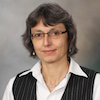 | Paola Sandroni, MD, PhD
Professor of Neurology
Mayo Clinic
Rochester, Minnesota
Dr. Sandroni is an accomplished researcher in the field of autonomic neurology, peripheral nerve disorders and pain medicine. She has authored over 100 peer reviewed journal articles and many book chapters on these subjects. Her research is focused on autonomic disorders, specifically Pure Autonomic Failure (PAF), Postural Tachycardia Syndrome (POTS), Multiple System Atrophy (MSA) and autoimmune autonomic neuropathies. She has also pursued resarch on erythromelalgia and Complex Regional Pain Syndrome.
Originally from Italy, she graduated from Milan Medical School and then came to the U.S. to study at the Mayo Clinic. She joined the Mayo Clinic faculty after completing residency in Neurology, a fellowship in peripheral nerve disorders and a pain medicine scholarship. Dr. Sandroni has served as the Chair of the Autonomic Section of the American Academy of Neurology, and is an active member of the American Autonomic Society. |
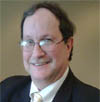 | Julian M. Stewart, MD, PhD
Professor of Pediatrics, Physiology and Medicine
Director of the Center for Hypotension
New York Medical College
Hawthorne, NY
By training, Dr. Stewart is a pediatric cardiologist (Cornell University Medical Center) and integrative physiologist (University of Chicago). He has been studying and treating the cardiovascular and neurovascular pathophysiology of orthostatic intolerance for more than 13 years under the auspices of grants from the National Institutes of Health. Dr. Stewart's focus is on acute and chronic orthostatic intolerance (OI) in the young, ranging in age from 14 to 29 years. Acute OI is known as postural Vasovagal Syncope, while chronic OI is known as Postural Tachycardia Syndrome, or Postural Orthostatic Tachycardia Syndrome (POTS). We have identified POTS as being the most common form of OI seen in patients with Chronic Fatigue Syndrome (CFS or CFIDS). Dr. Stewart and his colleagues at the Center for Hypotension have published widely in the field and have recently discovered connections between ventilation, angiotensin-II, nitric oxide, oxidative stress, cognition, cerebral blood flow, baroreflex function, peripheral modulation of sympathetic activity, and impaired splanchnic vasoconstriction and venoconstriction in these patients. Most recently they have found direct connections between autonomic dysfunction, OI and neurocognition in POTS patients, suggesting a connection between reduced neurocognitive performance and dysfunction of the neurovascular unit. |
 | Steven Vernino, MD, PhD
Professor and Academic Vice-Chair
Director, Clinical Autonomic Laboratory
Dr. Bob and Jean Smith Foundation Distinguished Chair in Neuromuscular Disease Research
Department of Neurology & Neurotherapeutics
UT Southwestern Medical Center
Dallas, Texas
Dr. Vernino completed his residency and fellowship training at the Mayo Clinic and served on the faculty at Mayo until 2004 when he moved to Dallas. He is currently an academic neurologist with an interest in autoimmune disorders (including paraneoplastic syndromes), neuromuscular disorders, autonomic disorders, and neurology education. He is a fellow member of the American Neurological Association and the American Academy of Neurology and a member of the American Autonomic Society. He also serves on the advisory board of the Multiple System Atrophy Coalition and the Myasthenia Gravis Foundation of America. He is an associate editor of JAMA Neurology and serves on the editorial board of Clinical Autonomic Research and Autonomic Neuroscience.
Dr. Vernino has published over 100 articles and presented his research all over the world. Much of his research has focused on the role of the immune system in causing neurological disorders. In particular, Dr. Vernino discovered that antibodies against the ganglionic acetylcholine receptor can cause a type of severe autonomic failure. He has also had an interest in autonomic testing including the use of infrared pupillometry to measure pupil responses in patients with autonomic dysfunction. |
|
|
|
